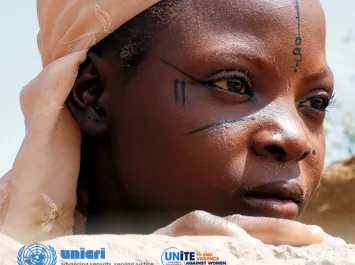The European Union is supporting Armenia in strengthening its national capabilities and building the basis of the CBRN National Action Plan, a strategic document aimed at mitigating CBRN risks and threats.
Effective mitigation of Chemical, Biological, Radiological, and Nuclear (CBRN) threats, necessitates the identification of weaknesses and gaps that require special attention. Incidents may happen at any time, whether resulting from unintentional mishandling of a chemical agent or deliberate attacks, with serious repercussions on the population, economy, and environment. To address this critical component of CBRN security and safety, many countries have initiated the development of a National Action Plan (NAP). This strategic document enables countries to define their priority activities, national needs, and existing gaps, with the ultimate purpose of strengthening their CBRN risk mitigation capabilities. To translate this concept into concrete actions, relevant national subject matter experts in the CBRN field convene to consolidate detection, prevention, preparedness and response capabilities.
Armenia Advances in Developing its CBRN National Action Plan
In 2023, on its path to mitigating CBRN risk and threats, Armenia initiated the assessment of its gaps and priorities through the Needs Assessment Questionnaire (NAQ) workshop. Comprising 300 questions, this comprehensive questionnaire addresses broad areas of CBRN safety and security. Following a methodology developed by the Joint Research Centre of the European Commission, the National Team examined nine sections: Legislation and Regulations, State CBRN Managing Authorities, Risk Mitigation Strategy, CBRN Prevention Measures, Detection of CBRN Materials, Preparedness and Response, CBRN Recovery Measures, Sustainability, and Strategic Trade Control. The outcome of the NAQ workshop was the formulation of the preliminary structure for Armenia’s future CBRN National Action Plan (NAP).
Continuing this trajectory, a follow-up CBRN NAP workshop was organised as the next logical step. Twenty-five members of Armenia’s CBRN National Team, tasked with implementing the EU CBRN CoE initiative at the country level, participated in a three-day NAP workshop held in Yerevan from 19 to 21 February 2024. Based on the workshop’s results, Armenia’s CBRN National Team identified priority actions to propose to policy makers for strengthening national capabilities in preparedness and response to CBRN events.
Eventually, this strategic document will be submitted for government approval, demonstrating Armenia's commitment to mitigating CBRN threats through a comprehensive and government-endorsed action plan.
Advancing CBRN Risk Mitigation in the South East and Eastern Europe Region
Armenia joined the EU CBRN Centres of Excellence in 2012 as one of the proactive partner countries of the Initiative’s Regional Secretariat for the South East and Eastern Europe region. Armenia has made significant progress in CBRN risk mitigation within the framework of the EU CBRN CoE Initiative and has actively participated in the various regional activities and projects fully funded by the European Union. These projects include: P53 - Strengthening the National Legal Framework and Provision of Specialised Training on Biosafety and Biosecurity, P57 & P58 Strengthening Crime Scene Forensics Capabilities in Investigating CBRN Incidents and Equipment, P67 - Strengthening CBRN Waste Management Capabilities, P88 - Strengthening CBRN Medical Preparedness and Response Capabilities, and P101 - Enhancement of CBRN Critical Infrastructure Protection and Security.
The completion of the CBRN National Action Plan was achieved through joint efforts of Armenia’s CBRN National Team, under the coordination of the CBRN National Focal Point, Mr. Armen Tepanyan, and in close cooperation with the European Commission’s Joint Research Centre (JRC), the South East and Eastern Europe Regional Secretariat, the United Nations Interregional Crime and Justice Research Institute (UNICRI), and the On-Site Technical Assistance network. At the country level, this joint effort is also supported by the EU Delegation in Armenia, which is an integral part of the European Commission’s External Action Service (EEAS).
The next step for the National Team is to submit the CBRN NAP for government’s approval and start its implementation based on the agreed set of actions. This significant achievement by Armenia’s CBRN National Team is a clear indication of the country’s intention to adopt global standards and implement best practices with the purpose of mitigating the risks and threats associated with CBRN materials. The first CBRN NAP paves the way for future partnerships and progress in CBRN national preparedness. It reflects Armenia's commitment not only to protect its citizens, environment and economy but also to contribute to making the South East and Eastern Europe (SEEE) region a safer place.
Background Information:
The EU CBRN CoE Initiative is a global Initiative funded and implemented by the European Union as part of its goal to promote peace, stability and conflict prevention.
The aim of the Initiative is to mitigate risks and strengthen an all-hazards security governance in Partner Countries of the EU following a voluntary and demand-driven approach. The EU support is provided to implement a wide range of CBRN risk mitigation activities including needs and risk assessments, national and regional action plans, capacity building activities, legal framework reviews, tabletop and real-time (including cross-border) field exercises, inter-regional exchange of best practices and lessons learnt.
Funded and implemented through the Neighbourhood, Development and International Cooperation Instrument (NDICI) – Global Europe, the Initiative is led by the European Commission’s Service for Foreign Policy Instruments (FPI), in close coordination with the European External Action Service (EEAS). The European Commission's Joint Research Centre (JRC) provides technical support to Partner Countries, while the United Nations Interregional Crime and Justice Research Institute (UNICRI) ensures a coherent and effective national, regional and international cooperation. Other relevant international and regional organisations and experts also contribute to the Initiative, which, involves 64 countries in 8 regions of the world, and represents the EU’s largest civilian external security programme.
Photo: Participants of the CBRN National Action Plan workshop in Yerevan, Armenia, 19 – 21 February 2024. Credit: MFA Armenia



